The fourth and last semi-final of THEMIS Competition was hosted by the Judicial Academy of Slovak Republic in Omsenie, Slovakia, between 27 and 30 June 2016. The subject of the semi-final was Judicial Ethics and Professional Conduct.
Nine teams from seven Member States (Estonia, France, Germany, Hyngary, Italy, Latvia, Romania) competed in this last semi-final.
|
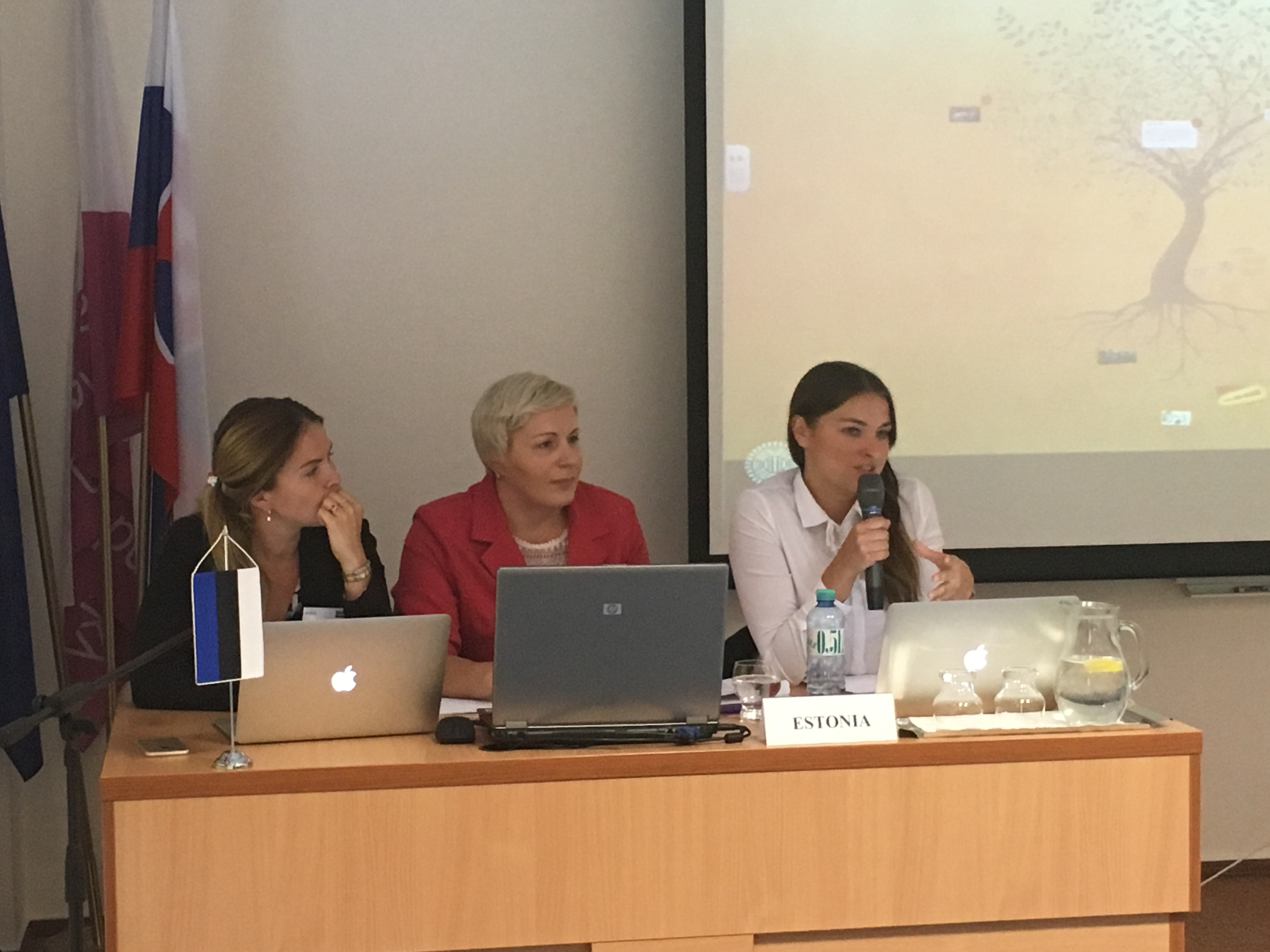 Team Estonia Team Estonia
|
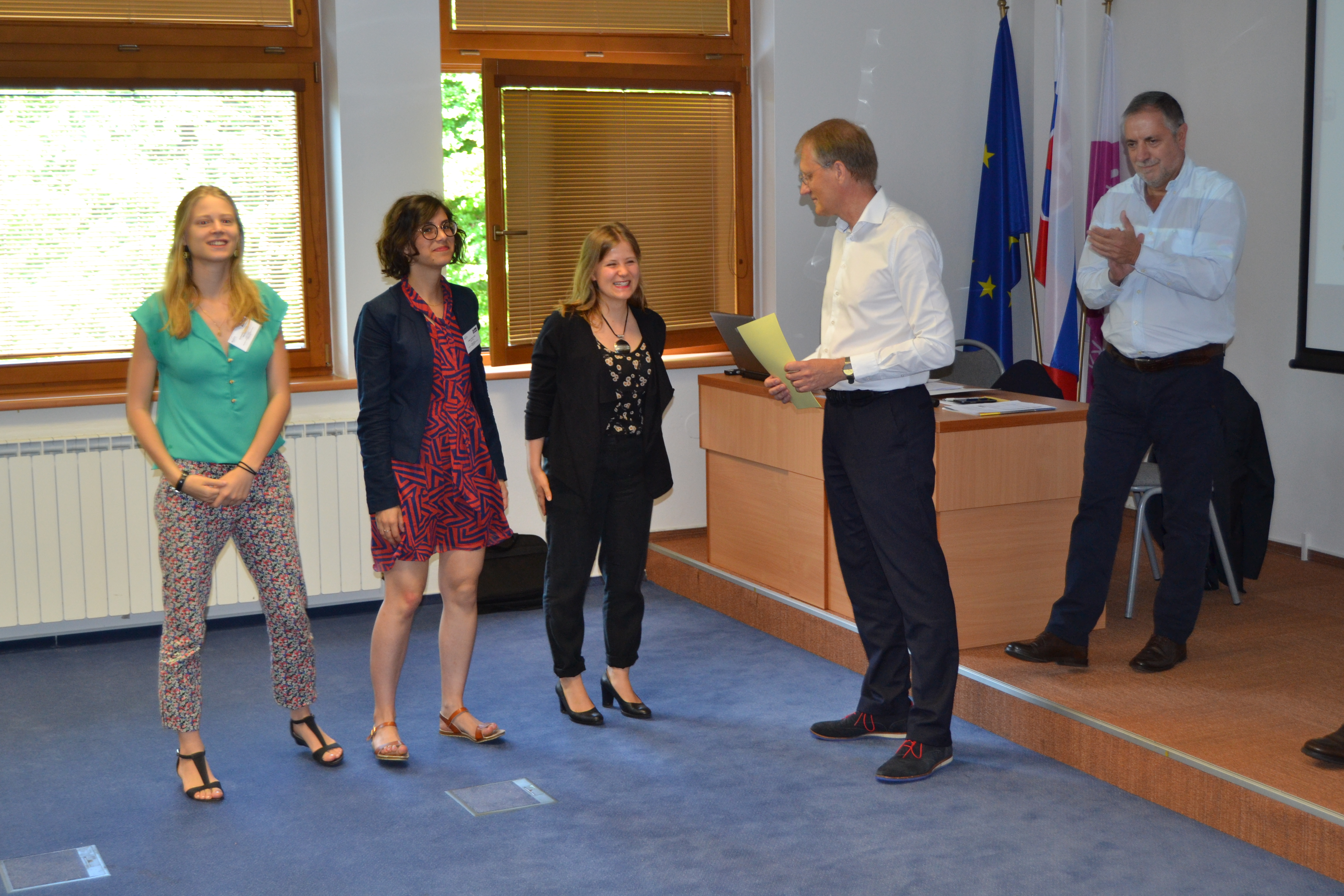 Team France 1 Team France 1
|
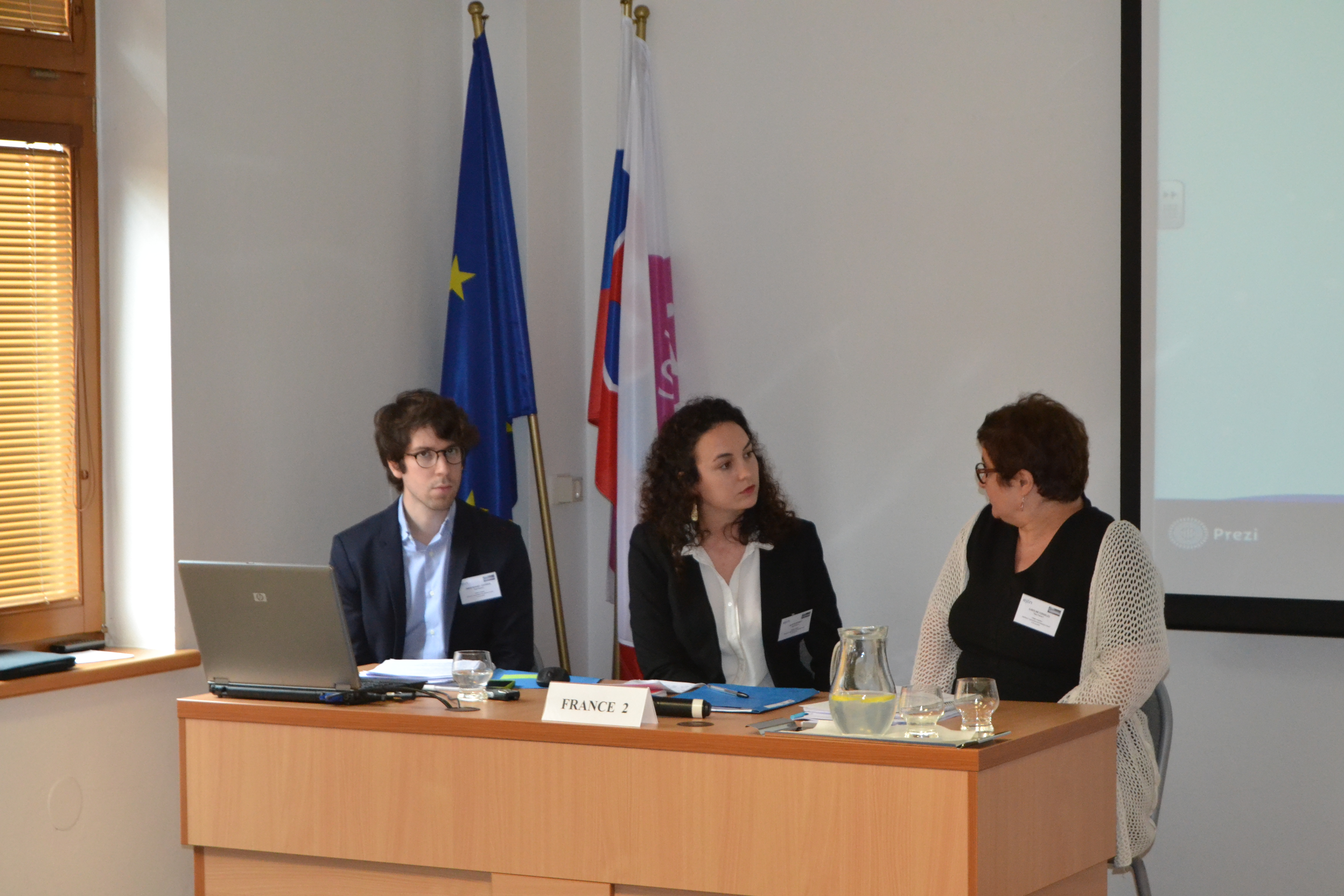 Team France 2 Team France 2
|
|
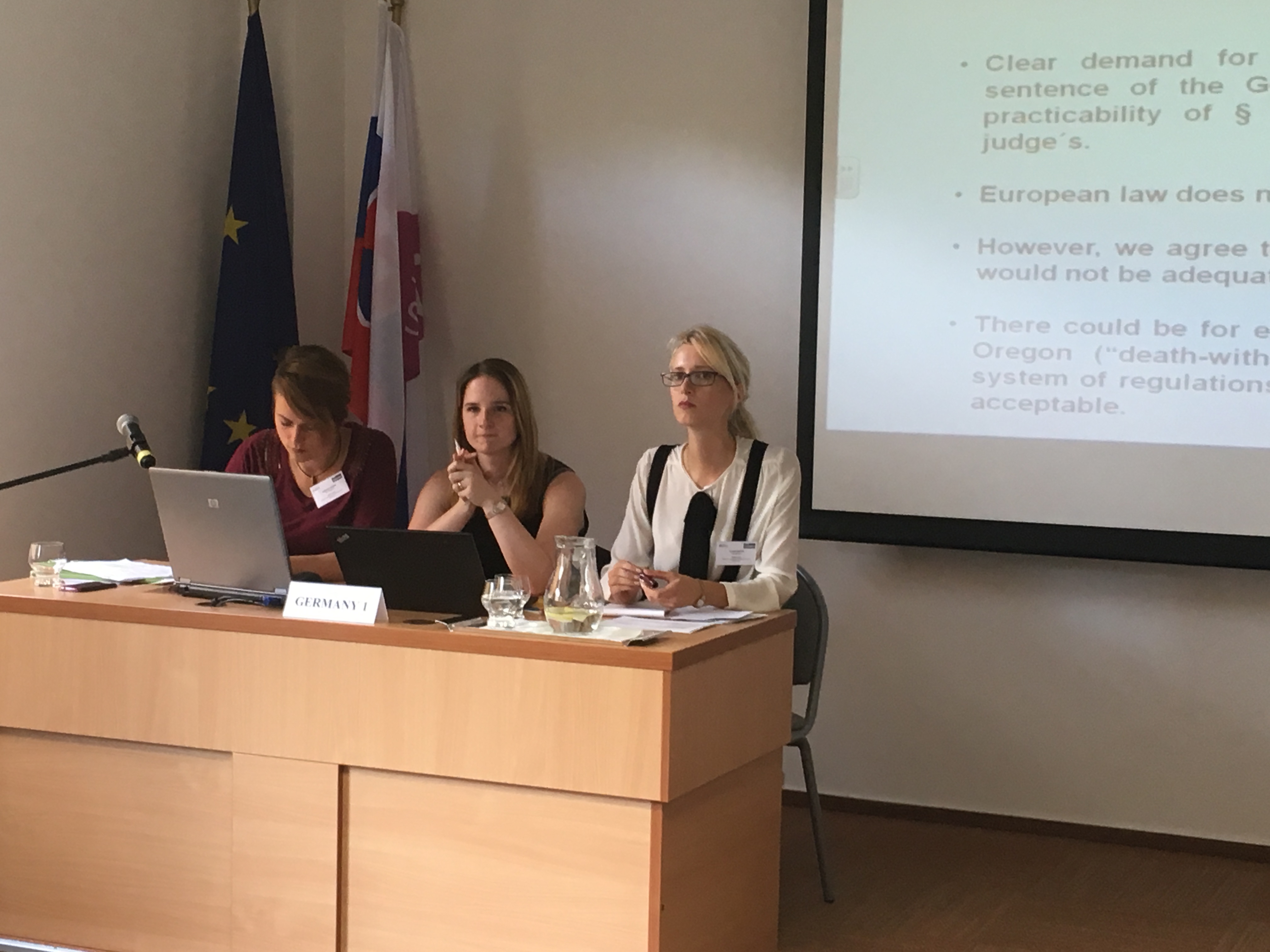 Team Germany 1 Team Germany 1
|
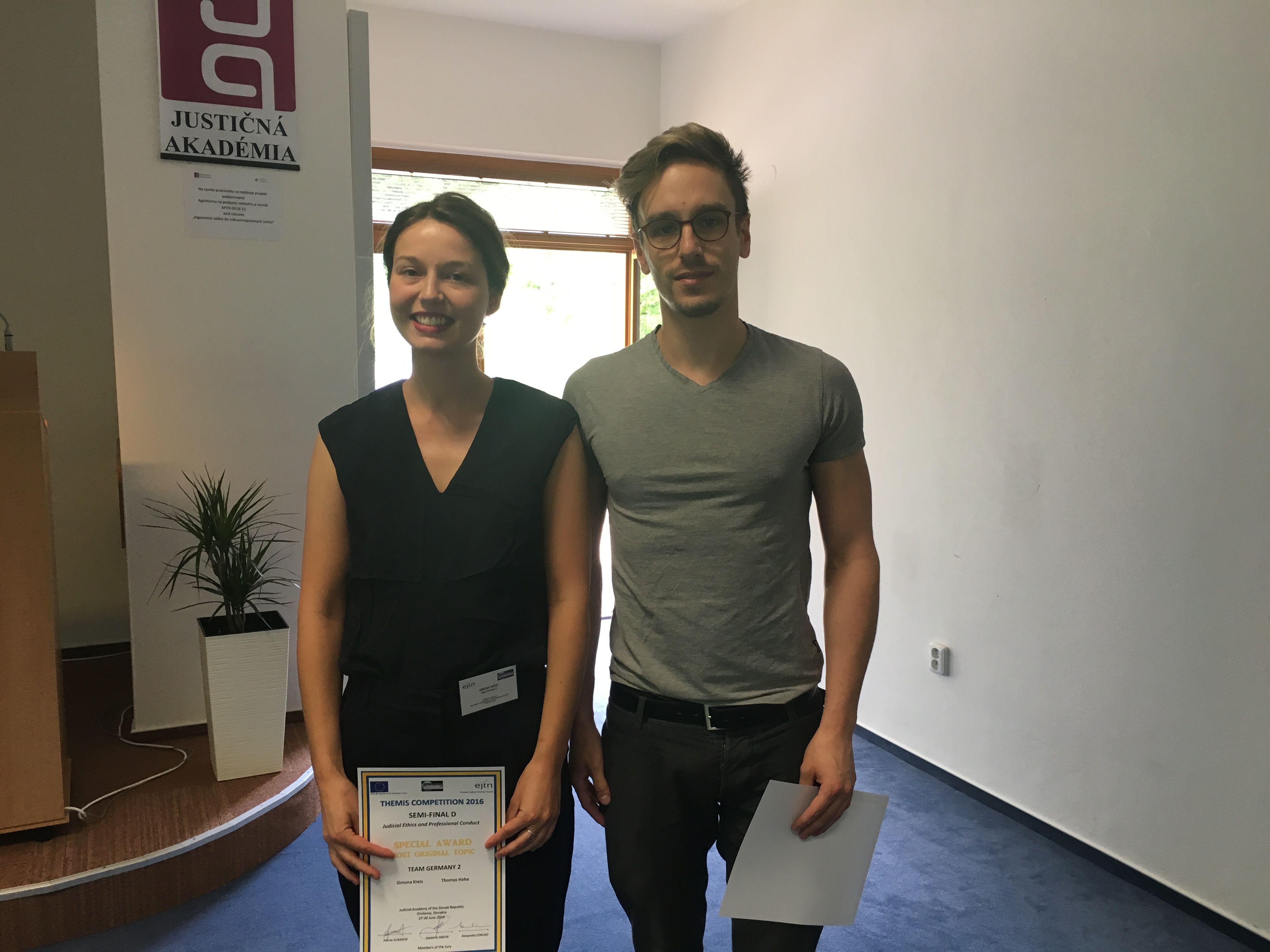 Team Germany 2 Team Germany 2
|
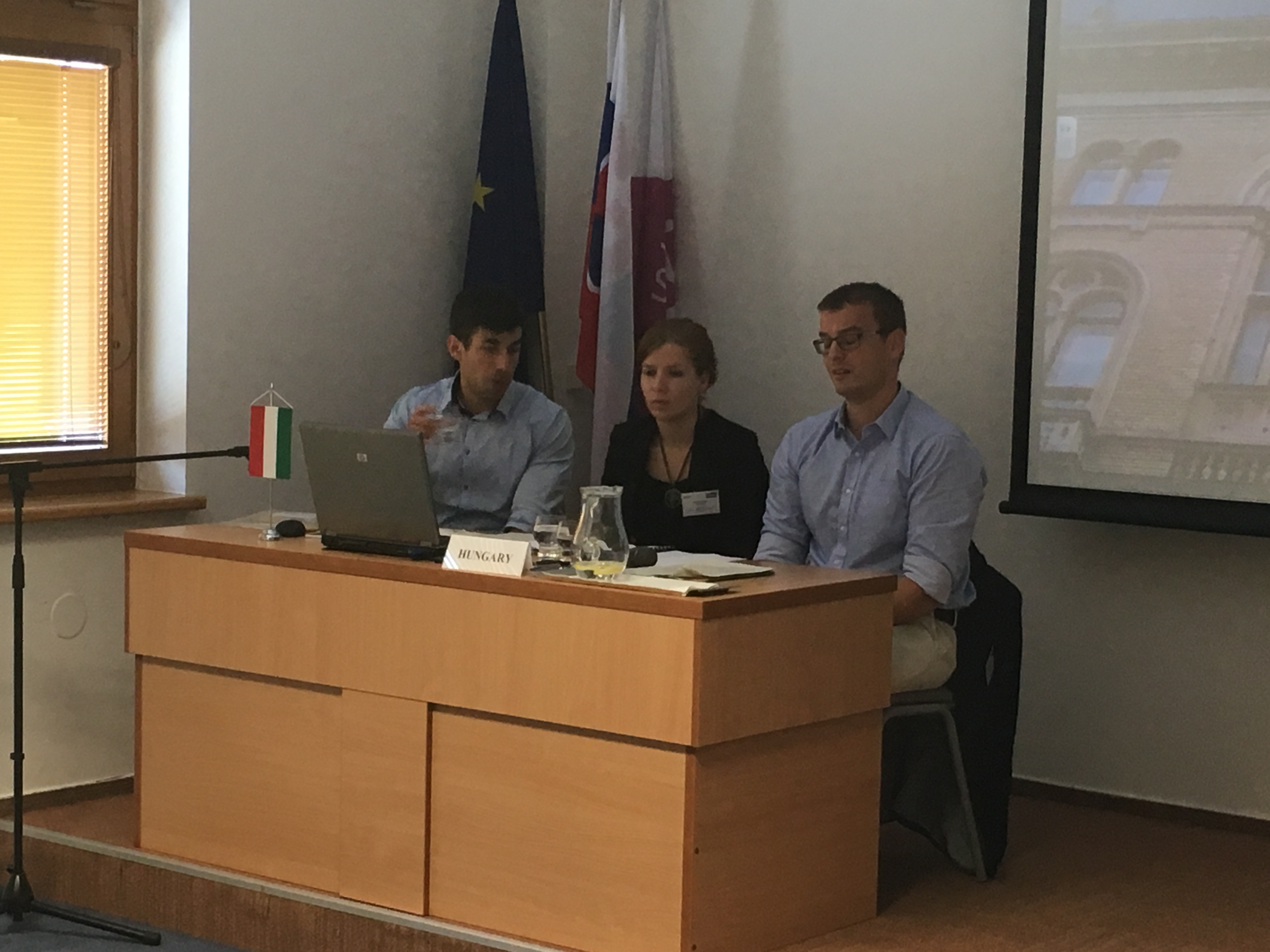 Team Hungary Team Hungary
|
|
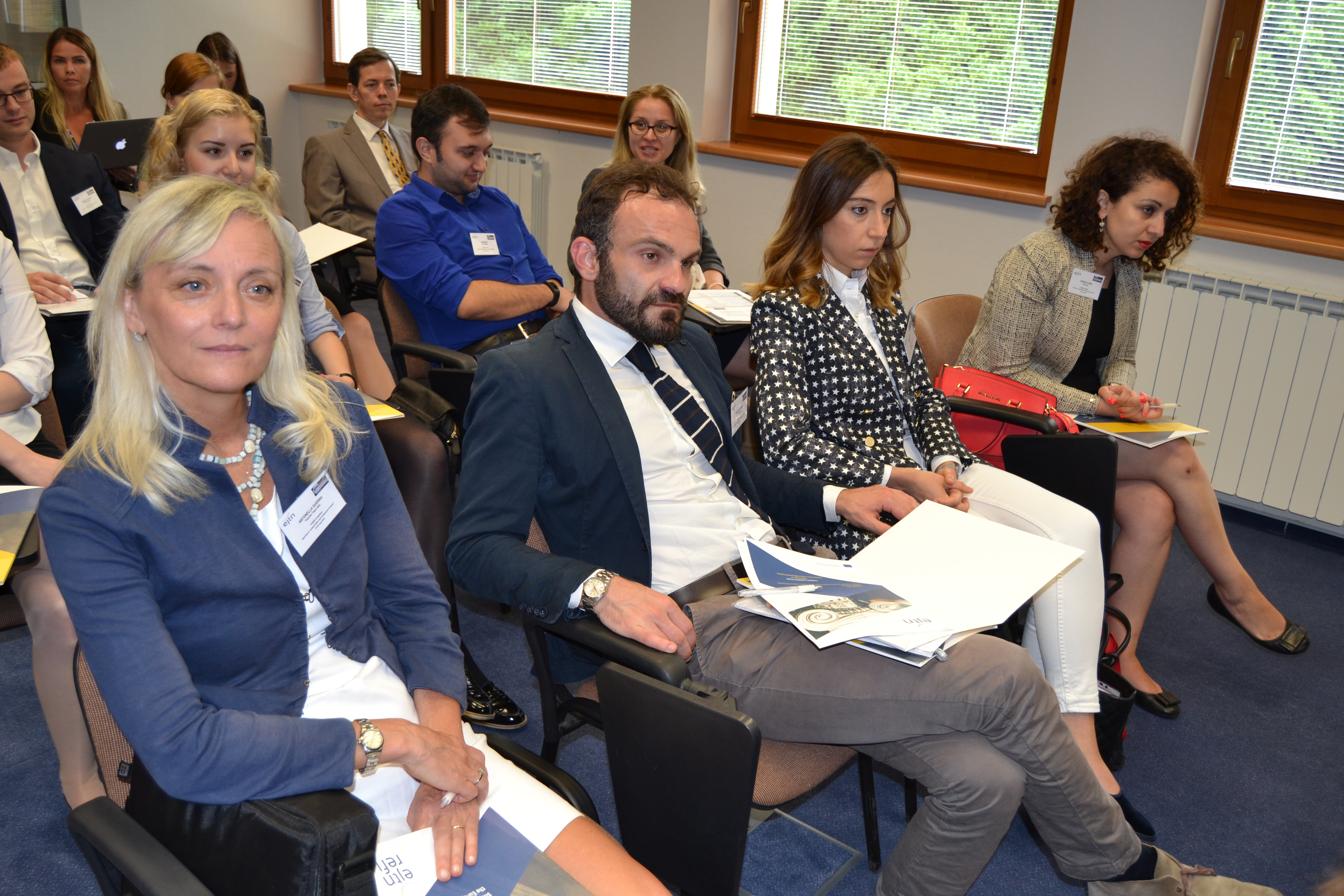
Team Italy
|
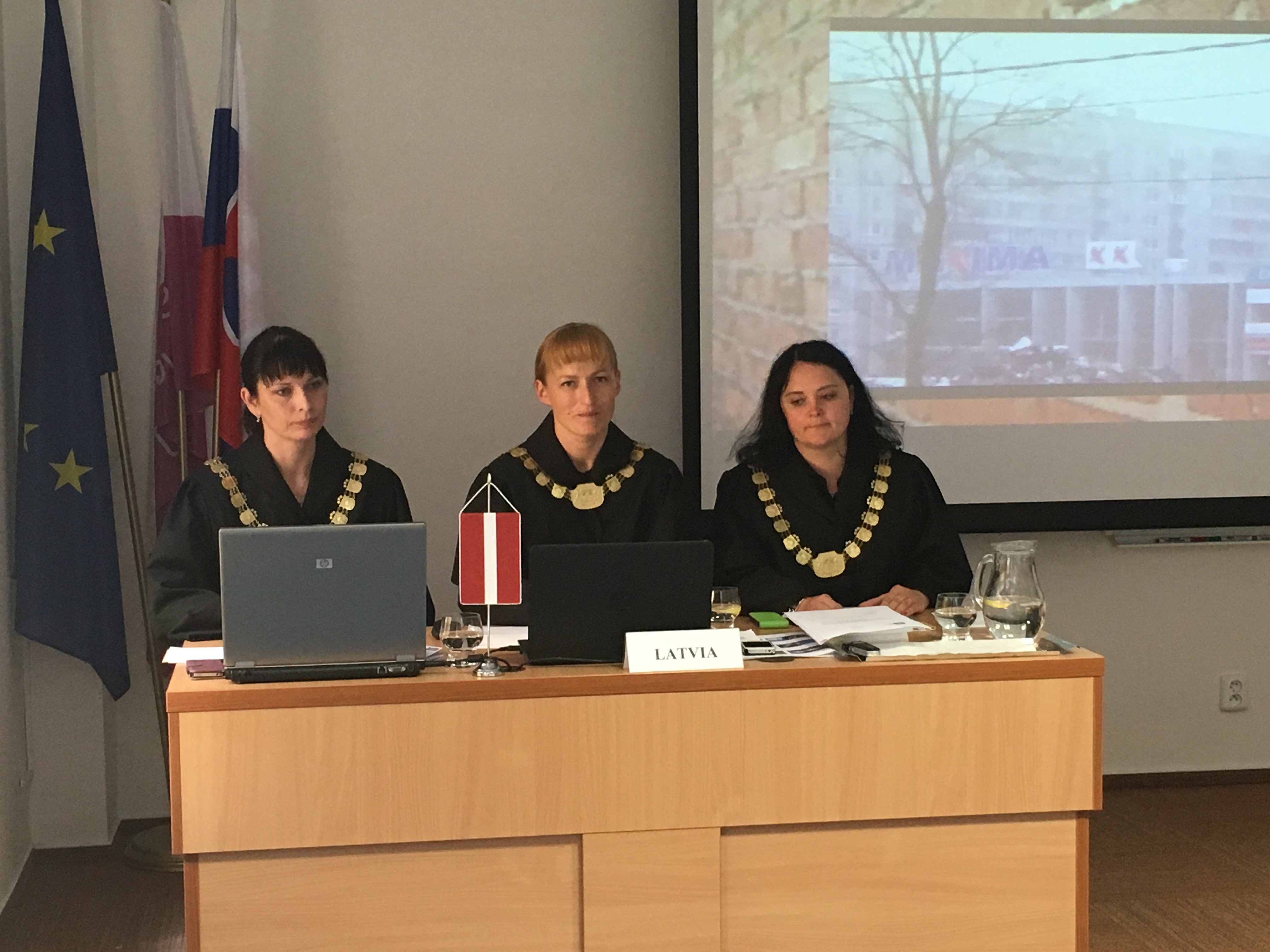
Team Latvia
|
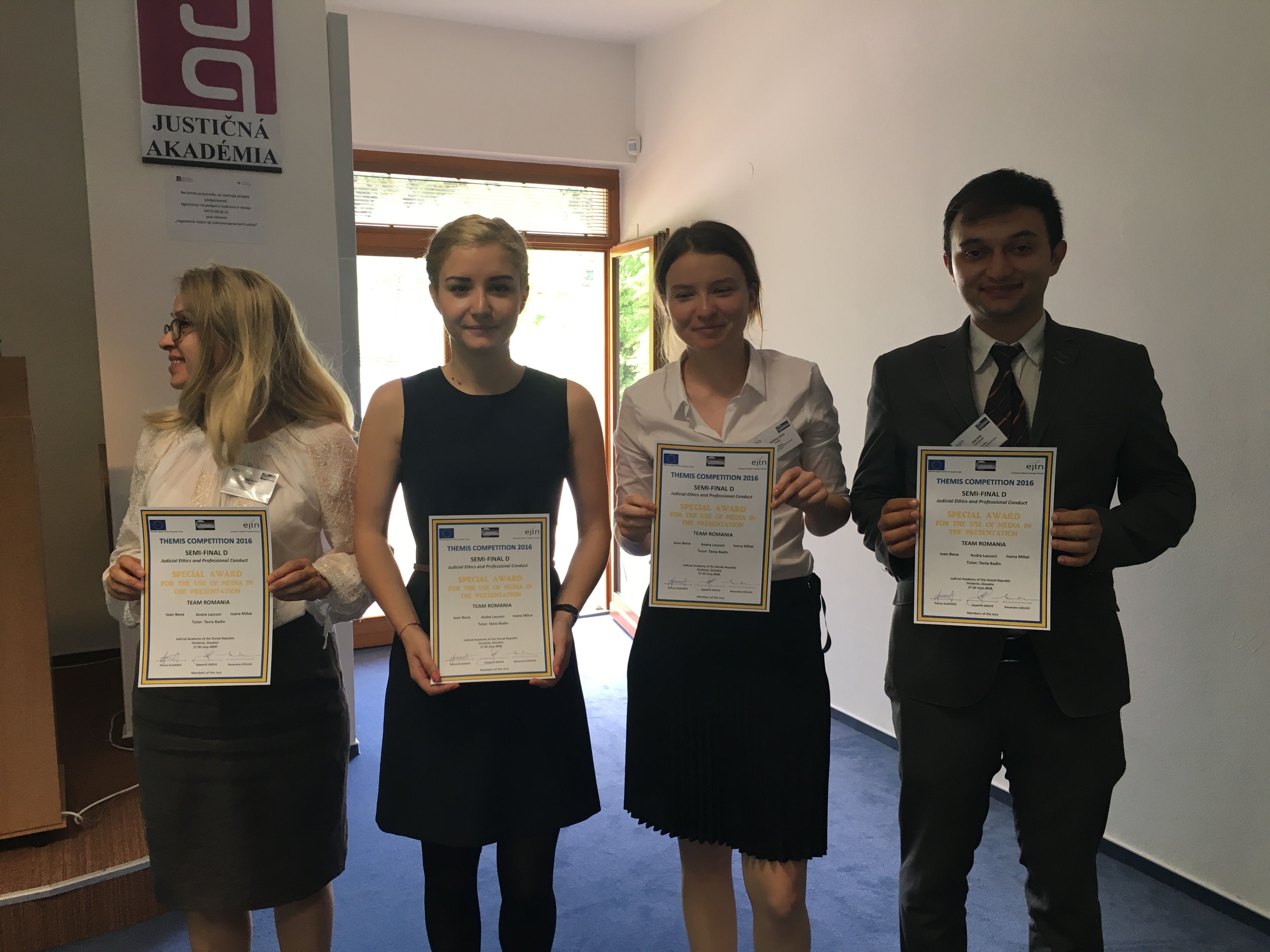 Team Romania Team Romania
|
The subjects addressed by the teams were very different, considering the broad topic, and included the issue of a code of ethics for prosecutors, the collective organisations of judges and professional conduct, the conflict of interest, ethics and professional conduct in the German Criminal Code, the moral rights to a judge’s opinion, judicial ethical values and their enforcement, international sources of law on judicial independence, the choice between recusal and non-recusal, the impact of overburdened judiciary on the independence and impartiality of judges.
For this semifinal the jury panel comprised two judges and one prosecutor, three very experienced magistrates that have accepted EJTN’s invitation to be member of the jury and assess the competing teams: Mr. Diederik Greive (NL), Chief prosecutor at the National Office of the Public Prosecution Service, The Hague, Netherlands, Mr. Alexandre Coelho (PT), Senior judge at Évora Court of Appeal, former President of the Portuguese Association of Judges and Mr. Petros Alikakos (EL), Judge, Trainer of the Greek School of Judges and Prosecutors, CEPEJ expert.
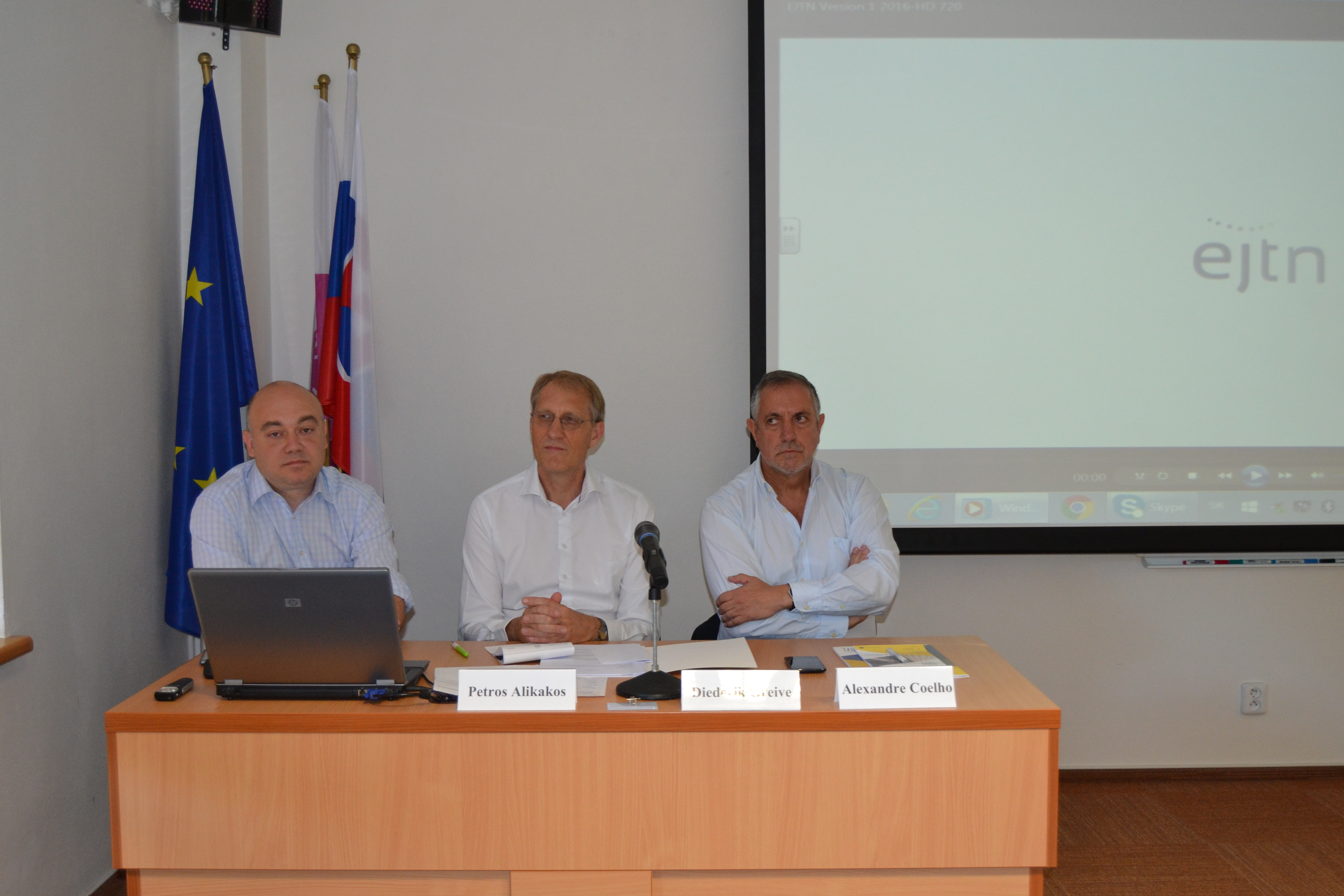
The jury members
The jury members had the difficult task to assess the teams in all the three stages of the competition: the written papers, the oral presentations and the discussions and to decide the last two teams that will qualify to the final. They had to assess participants’ performance according to the criteria stipulated in THEMIS Rules: quality, originality, reference to the relevant case law of the European Court of Justice and European Court of Human Rights, in-depth analysis of the latest European debates on both ethics and EU Law and anticipation of future solutions.
Congratulations Team France!
First place was awarded to Team France 1 (Ms. Gabrielle Fauconnier, Ms. Alexandra Husson, Ms. Camille Roux d’Anzi and tutor Ms. Clemence Caron), which had an interesting written paper and presentation on the collective organisations of judges and professional conduct. Second place was awarded to Team Hungary (Ms. Gertrud Waida, Mr. Istvan Bereczki, Mr. Mate Kiss and tutor Mr. Levente Simon), which had a written paper on judicial ethical values and their enforcement and delivered a very interactive oral presentation.
Both teams are joining the other six winning teams from previous semi-finals (Austria, Czech Republic, two teams from France and two teams from Romania) in the Grand Finals to be held in France, in November.
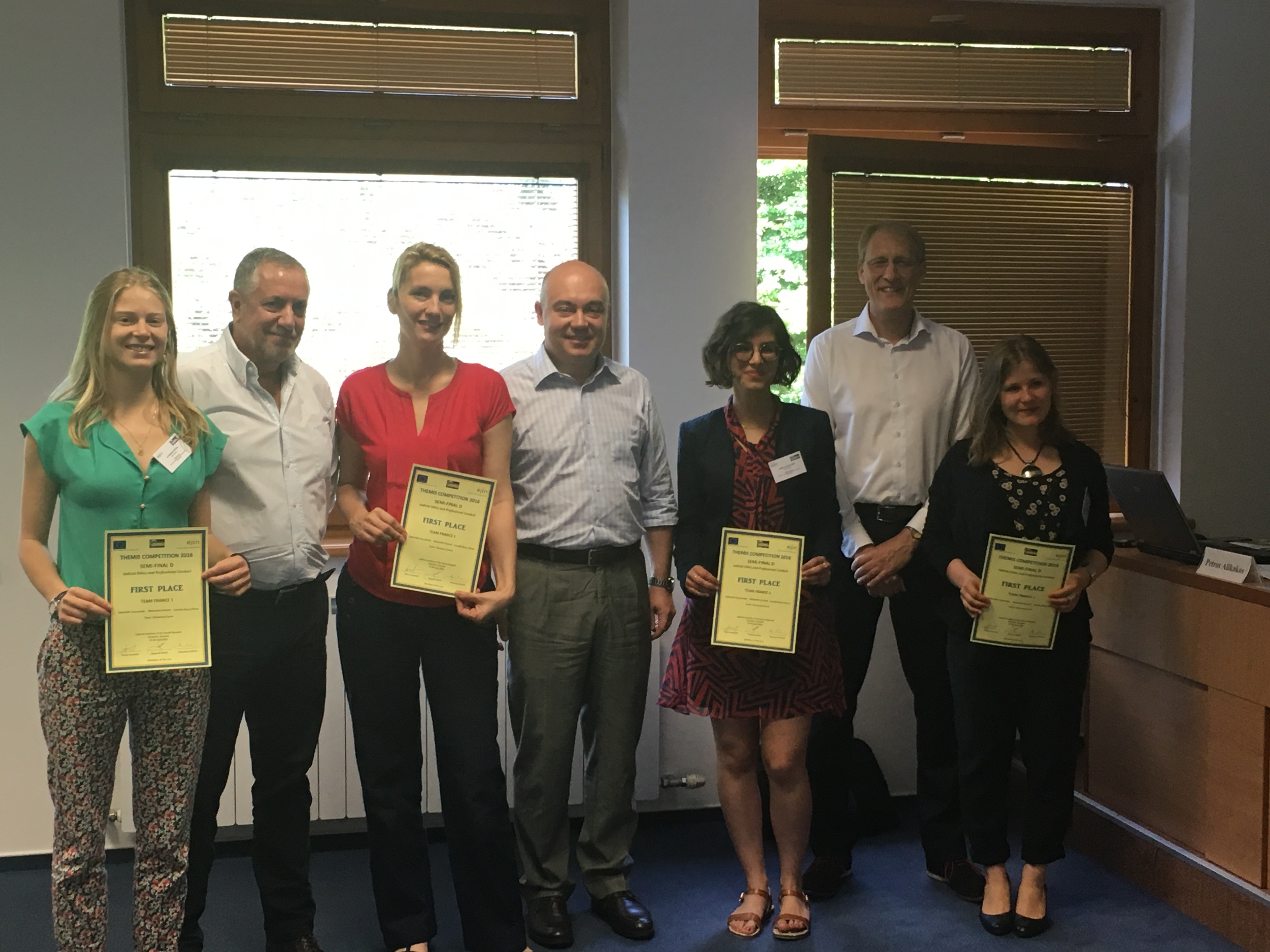
Team France - first place |
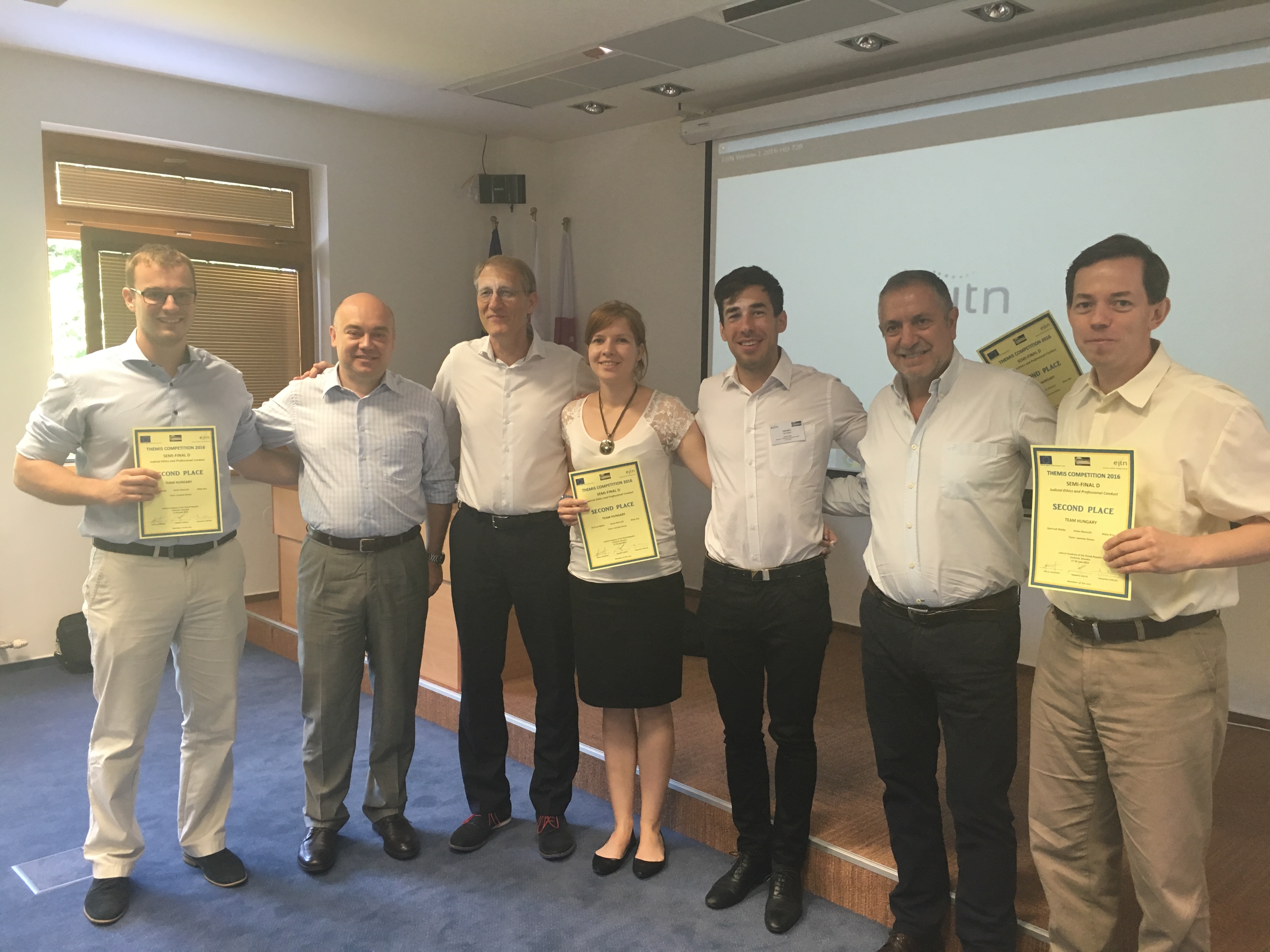
Team Hungary- second place |
Special awards
Given the high level of all teams in the semifinal and their effort in developing very interesting topics and presenting them to the audience using different presentation techniques, the jury decided to award three special prizes: the special award for the most original topic to Team Germany 2 (Ms. Simona Kreis and Mr. Thomas Hohe) that chose the topic of moral rights to a judge’s opinion and the special award for the use of media in the presentation for Team Romania (Mr. Ioan Bene, Ms. Andra Monica Lasconi, Ms. Ioana Andreea Mihai and tutor Ms. Tania Badin) and for Team Hungary (Ms. Gertrud Waida, Mr. Istvan Bereczki, Mr. Mate Kiss and tutor Mr. Levente Simon).
The jurors presented the difficult task to evaluate all the teams because of the broad topics addressed in the written papers and because of the effort needed during the oral discussion. The jury had in mind that it is not only about asking difficult questions, but also to guide the discussions as the audience can follow and understand. They have made an extensive oral assessment of all the teams in the competition, explaining from the beginning the main criteria they have used when assessing the performance of the teams.
Throughout its long 11-year history, the THEMIS Competition has been helping future European magistrates to exchange views and experiences and improve their presentation and language skills. Most importantly, the Competition offers them the opportunity to enhance personal and career contacts and to familiarise themselves with different approaches to the same legal topic, creating a space for improving mutual trust in other European legal systems.
What the participants thought about this semi-final?
“I feel truly lucky to have had the opportunity to participate in this competition, which was positive on so many levels. For me, this event was first and foremost a way to directly experience European cooperation. We often perceive judicial partnership between European states as a diplomatic matter conducted by officials in Brussels, but rarely does it resonate on a personal level. By bringing young judicial trainees together for a few days to reflect upon their practice and share their experience, Themis brings this cooperation to life. Not only is it an intense human experience, but it offers intellectual emulation. Team presentations are fun, informative, challenging. Members of the jury stimulate participants to go beyond their comfort zones and ask themselves the right questions, with rigour but always with kindness and respect. If I had to sum up, I would describe Themis as a breath of fresh air. It prompts us to step out of our daily routine, to take some critical distance with our activity and confront ourselves to other mind-sets. And… let’s be honest, who wouldn’t appreciate getting to discover a new European city with great people (and potential hosts in other European places worth visiting ..!) ?”, Alexandra Husson, Team France 1, winner of the semi-final.
“I took part in the THEMIS-Competition because it gives judges, prosecutors and lawyers in training a unique opportunity to learn and discuss about judicial questions in a competitive, fun and European manner. We talked about different national approaches and evaluated European answers. Since our training is national, sometimes the views on judicial questions gets limited by boarders. Exchanging my view with trainees all around Europe showed me the potential of a European platform. I experienced the THEMIS-Competition as an excellent organized event in a beautiful location (with lots of Slovak cake) that gave me the opportunity to share an idea with future colleagues and friends.”, Simona Kreis, Team Germany 2, winner of the special award for the most original topic.
“Being here in Omsenie for Themis Competition was a great and very fruitful experience. The Slovakian Academy was a generous and very efficient host. The organization of EJTN was perfect as usual. I think that all the teams did their best, I appreciated very much the personal involvement of each single participant, of the teachers and of the jury. I am only disappointed for not having the opportunity of being a participant! My suggestion for the future: extend Themis for experienced judges!”, Antonella Guerra, tutor of Team Italy.
EJTN wishes to thank the hosting institution for the support in organizing the event and for the constant assistance during the four days of the semi-final, and especially to Mr. Peter Hulla, Director of Judicial Academy of Slovak Republic for his warm welcome words.
EJTN is the proud organiser of the annual THEMIS Competition, and is grateful for the financial support of the European Commission’s Justice Programme.
Written papers
Read more about THEMIS on the THEMIS project page.
About THEMIS
The main aim of the THEMIS project is to bring together future magistrates from different European countries at a time when they are undergoing entry level training to enable them to share common values and to exchange new experiences and discuss new perspectives in areas of common interest.
The project also aims to develop abilities related to the future profession of the participants, such as communication skills, debating abilities, critical and analytical thinking, logical reasoning and proper legal writing. Furthermore, THEMIS is intended to foster the development of professional contacts, experiences and relationships between both the entry-level trainees in magistracy and their teaching staff.